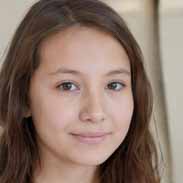Nature of Science study guide – Flashcards
Unlock all answers in this set
Unlock answersquestion
observation
answer
use of one or more of the senses—sight, hearing, touch, smell, and sometimes taste—to gather information
question
prediction
answer
a statement made in advance that expresses the results that will be obtained from testing a hypothesis if the hypothesis is supported; the expected outcome if a hypothesis is accurate
question
hypothesis
answer
a testable prediction, often implied by a theory
question
inductive reasoning
answer
reasoning that uses a number of specific examples to arrive at a plausible generalization or prediction
question
deductive reasoning
answer
reasoning in which a conclusion is reached by stating a general principle and then applying that principle to a specific case
question
experiment
answer
the act of conducting a controlled test or investigation
question
independent variable
answer
(statistics) a variable whose values are independent of changes in the values of other variables (time)
question
dependent variable
answer
variable that changes as a result of a change in the independent variable (growth occurred after time)
question
positive control
answer
is a procedure that is very similar to the actual experimental test, but which is known from previous experience to give a positive result.
question
negative control
answer
The negative control is an experiment done with a sample that should normally yield a negative result.
question
qualitative data
answer
data you collect usuing your senses
question
Conclusion
answer
a summary of the results of the experiment and a statement of how the results relate to the hypothesis
question
quantitative data
answer
Data associated with mathematical models and statistical techniques used to analyze spatial location and association.
question
theory
answer
a well-substantiated explanation of some aspect of the natural world
question
law
answer
statement about how things work in nature that seems to be true consistently
question
Francesco Redi
answer
This scientist disproved spontaneous generation by showing that maggots do not spontaneously arise from decaying meat.
question
John Needham
answer
an English scientist who claimed that spontaneous generation could occur
question
Lazzaro Spallanzani
answer
Italian physiologist who disproved the theory of spontaneous generation (1729-1799)
question
Louis Pasteur
answer
A French chemist, this man discovered that heat could kill bacteria that otherwise spoiled liquids including milk, wine, and beer



